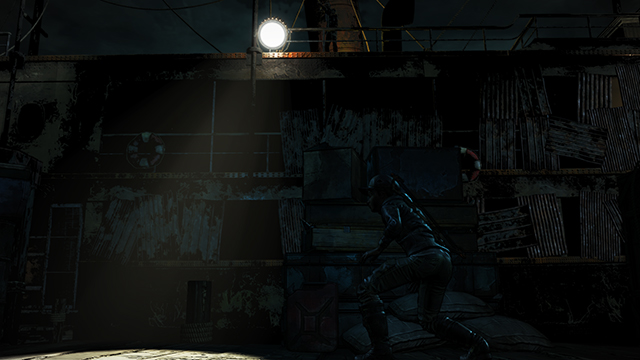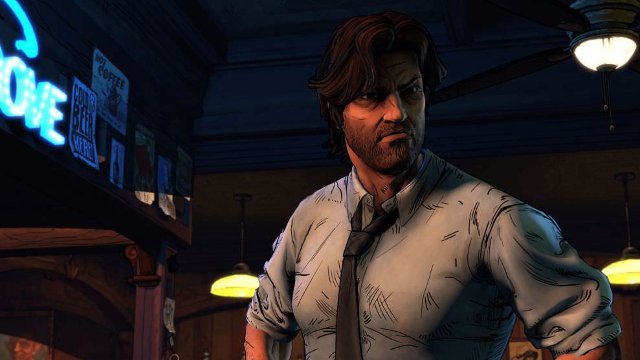Gaming is seemingly always in a state of change. From technology to business models, the industry is constantly evolving in some sort of way. Trends fade away as rapidly as they come into style, and that sadly seems to be the case with episodic gaming. What seemed like the next big thing in gaming is now becoming a rarity.
Telltale’s impressive rise through the industry in the past decade was noticed by many especially after The Walking Dead. The studio went from making fun adventure games like Sam and Max to working on some of the biggest properties in all of entertainment due to their formulaic, yet enjoyable, approach to their titles. However, that rise turned into a stagnant company that was criticized over lackluster stories and outdated game engines, and eventually led to a massive collapse as the majority of its employees were laid off with minimum notice.
One company’s issues wouldn’t normally make a industry rethink the viability of an entire business model, but other episodic titles have had hardships as well. Square Enix eventually cut ties with Hitman developer IO Interactive due to its disappointment over the episodic reboot’s commercial success (despite being a critical lauded stealth title), and IO released a much more traditional sequel in 2018.
We’ve also seen many episodic indie games, such as A Crowd of Monsters’ Blues and Bullets, Swery’s D4: Dreams Don’t Die, and virtual reality adventure Loading Human, wind up being quietly canceled before they were completed. Fans got invested in stories that had no payoff, and felt like they were used because of it.
With all of these unfortunate events coalescing over a short time period, it’s difficult to not wonder if we’re experiencing the death of episodic gaming. While it isn’t danger of dying just yet, it has a major perception issue in that the current crop of games have to be major successes if the episodic model is to remain viable.
The current state of episodic games

The biggest episodic game currently in development is Dontnod Entertainment’s Life is Strange 2. Coming off of two highly acclaimed predecessors, Square Enix’s expectations are high for the series going forward. Reviews have been positive and Steam charts show that it is selling well so far. This is a good sign, as a negative reception or a disappointing follow-up could make more publishers shy away from episodic titles in the future. It’s certainly a lot of pressure to put on one release, but that’s the unfortunate state that it is currently in.
However, even Life is Strange 2 may be going against the model since you can’t currently buy each installment episodically; you must buy the last four episodes in one bundle. It’s almost as if Dontnod is afraid of players wandering away and forgetting to return to Sean and Daniel’s tale in between the long waits between episodes.
Meanwhile, Telltale Games’ The Walking Dead: The Final Season is being finished by production company Skybound Games, who picked up many former employees in order to finish the last two episodes. The first episode since Telltale’s mass restructuring just released in January, and while reviews were generally positive, it hasn’t made much waves upon finally coming out.
For the most part, The Final Season’s reputation has already been attached to it. Seemingly fitting for a game about zombies, it’s the byproduct of a walking corpse that is barely hanging on to some sort of existence. Nothing short of the greatest individual episode of all-time would make this anything more than the sad ending note in the history of a compelling story that went on for far too long and was plagued by technical issues throughout the way.
Finally, indie title Kentucky Route Zero is finally finishing up its lengthy development as the final fifth act is releasing later this year. The critically acclaimed first chapter released in early 2013 and was followed up in May of that year. However, the wait quickly became longer as the third act took a year to come out, the fourth one took two years, and now it’s going on three for the final chapter.
Even the most patient of fans have grown frustrated by the point and click title’s slow release schedule despite the quality remaining high. It’s evidence that episodic titles need a regular schedule, and one that is well communicated to the playerbase, in order to keep its audience happy. Merely delivering a solid game on your own time isn’t enough.
And, of course, there is Half-Life 2 Episode 3 or Half-Life 3, but you already know how that went. It’s the shining example of how wrong episodic gaming can go.
What does the future look like?

While the trend of episodic gaming is winding down, we are seeing another type of game currently flourish: the games as a service model. While that can be harder to achieve with more story-driven titles, there are still ways to lengthen a game’s tail. Publishers could start pushing back by releasing full games with planned expansions coming in the future. This longtime business practice that flourished on PC two decades ago is something that we’ve been slowly seeing more of. History does rhyme, after all.
If the current business model is to continue, though, it’s clear that publishers need to incentivize players to buy early rather than waiting for a price drop. I stopped purchasing Telltale Games as they were released since it was far more cost effective to simply wait until the story was finished and it was on sale. Be it through exclusive content or major moments that truly keep a conversation going throughout the release schedule, the developers need a way to convince players that they need to play the episodes upon release rather than waiting. This is certainly easier said than done and it’s doubtful we’ll see more than a few episodic gaming releases per year going forward.
No matter what happens, it’s clear that episodic gaming will never achieve the goal that many had for it. Many thought it was a great way for games with a wider scope to get made by smaller studios since they could get cash infusions throughout the development cycle, but all of the failed projects and cancellations have shown that isn’t the case. Instead, it’s a tool that can be leveraged by developers that already have a trusting relationship with their fans; one where they know they will receive the content they are promised. As Telltale’s fall shows, once that relationship is fractured, it can’t be repaired.







